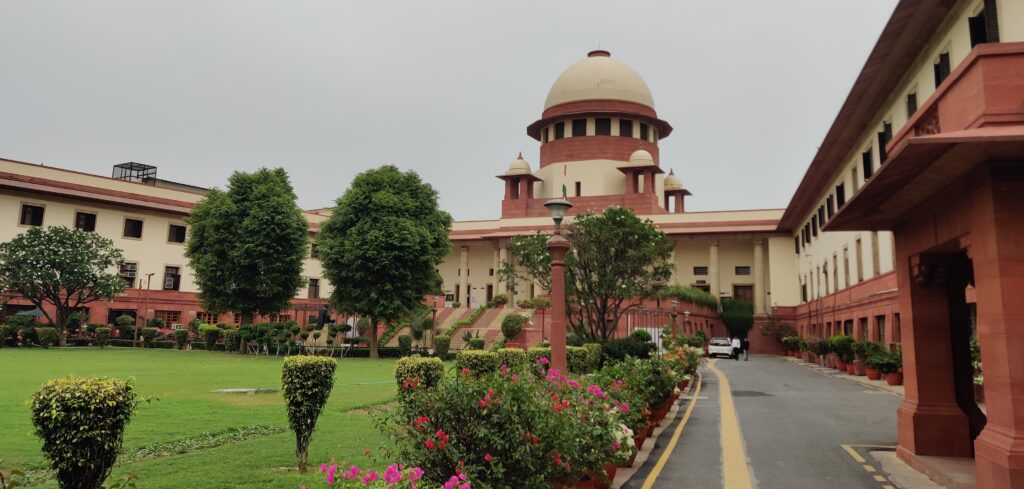 Supreme Court judge Justice UU Lalit, who is currently the Executive Chairman of the National Legal Services Authority (NALSA), is on a mission – to spread awareness about free legal aid and ensure that legal aid reaches every deserving individual.
Supreme Court judge Justice UU Lalit, who is currently the Executive Chairman of the National Legal Services Authority (NALSA), is on a mission – to spread awareness about free legal aid and ensure that legal aid reaches every deserving individual.
Towards this end, an All India District Legal Services Authorities Meet was organised in New Delhi, a first of its kind event, which saw the participation of all District and Session Judges, from across the country, in charge of legal services.
For his initiative, the judge drew praise from Prime Minister Narendra Modi, who was the chief guest at the event.
Justice Lalit is also slated to take over as the Chief Justice of India on August 27 this year when incumbent CJI NV Ramana demits office.
Bar & Bench caught up with Justice Lalit for a brief chat about his passionate involvement in ensuring expansion and dispensation of free legal aid to every nook and corner of the country.
Q. What according to you is the most pressing difficulty that in dispensing of legal aid?
Justice UU Lalit: There are two basic difficulties. One is that most of the population is entitled to legal aid but they are not aware that they are eligible for legal aid due to various factors – lack of knowledge, lack of experience, or lack of exposure to the entire set up.
We wanted to create awareness and that is why we organised that 42 days awareness camp.
Legal aid dispensation has to be of good quality. The work done should not be for ‘naam ke vaaste’ (namesake) but as a mission. If we inculcate this habit, then legal aid dispensation, would have achieved everything.
What happens is there is many a miss between the cup and the lip and, therefore, we need to bridge that gap. Our vision is to take care of outreach programs, awareness and to ensure facilities are available for legal aid lawyers.
For example, if we have a legal aid set up in a remote district, that area must have the facility of e-library where lawyers can have the assistance of law reports and latest judgments at the click of mouse.
Infrastructure must be assured and then comes the talent. Talent must be of good dimension and quality. Once we ensure that, then the true idea of legal aid will get penetrate everywhere.
If 70 percent of the population is below the poverty line then theoretically we must have the entire 70 percent and litigation coming from them under the belt of legal services. We do not have that and we barely have 18 percent.
Thus, confidence has to be built and the gap between 18 and 70 has to be bridged.
Q. Many times what we encounter in the name of legal aid counsel are dispassionate arguments in courts. Does low monetary compensation have a role in that?
Justice UU Lalit: One idea is that people with that kind of vision and spirit must be involved in this. Large number of advocates who share that idea and spirit must come forward.
At times people don’t come forward. Youngsters at the initial stage do not have enough exposure. They are aiming for that exposure which will give them experience and help them rise in the profession.
So we need to tap such talent – those who are aspiring for exposure and experience. They will bring talent to the table and you will give them exposure or experience in return.
In the bargain, the legal aid committee will stand to prosper.
